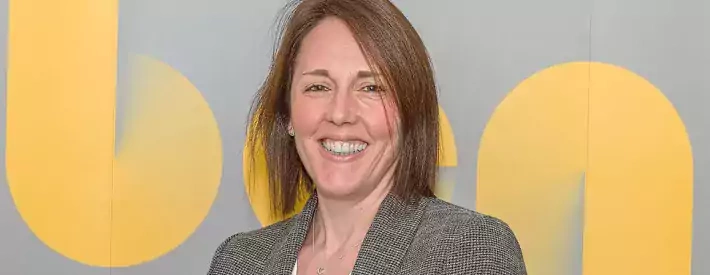Rachel Clift: How to access Ben

In this article: The industry’s designated charity Ben does amazing work, and during the COVID-19 pandemic, its services are even more needed. The organisation’s Health and Wellbeing Director Rachel Clift explains how to access the help you need
The motor industry charity Ben has a long history of helping those in need whether you work for an enormous company or you’re a one-man firm, offering services ranging from physical and mental health to care services.
And as the industry and individuals continue to face the challenge of the coronavirus it remains in place to help, although during the initial stages of the pandemic enquiries weren’t as high as you might expect according to the charity’s Health and Wellbeing Director Rachel Clift.
“Quite a lot of our referrals come from the industry, so when the industry shut down we saw a reduction in inquiries and cases for those that come through our mental health pathway,” she says.
But that could now change as we see the industry begin to reopen. “The tide is going to turn because as people come out of this scenario they’ll begin to think what next? So, we’ll invariably have a higher service demand,” says Clift.
Ben is prepared, and if you have the need to use its services – and you shouldn’t hesitate if you do – the process is straight forward and easy to use, and you’ll be guided through it from the moment you first get in contact as Clift explains.
Get in touch
“We’d encourage people to reach out, and there are three ways people can access our helpline; through web chat, telephone, or email. We would first up try to identify what their issue is, so if they contacted us via web chat, we would try and encourage them to pick up the phone to speak to us, because invariably we can glean more and start to move them through a process of support.”
Fast tracked to guidance
“What we've tried to do during this period is to fast track access to information advice and guidance specifically around financial support. So, if somebody is struggling with their current situation, we will get them straight in see a case manager without going through lots of administration around proof of industry connection. And if we felt that there was additional support that they needed financially, or in other aspects such as mental health and other areas, then we would go through a needs assessment.”
Tools to succeed
“We currently use a product called the Well-being Star, which is an outcome measurement tool that helps us to look at where someone is now, and then we measure at different intervals to show their progress as well as measuring our impact. It basically identifies where their needs are so we can coordinate an action plan for the individual. If that meant that they needed to have a financial assessment because they were looking at welfare grants, we would go through that process with them too.”
Mental wellbeing and support
“In addition, they can still access our mental health pathway at the same time, so it's not like they have to just work on one thing, they can work on multiple aspects at the same time. Ultimately, it's the support service side which manages the case, so they'll go from helpline, identify what it is that they have reached out to us for support. If it's the financial advice and guidance, they’re fast tracked to a case manager to provide that support. If it isn’t we go through the normal process of a needs assessment, identifying what it is that they feel they need support with, and the case manager would then be allocated to work with them on an action plan.”
With you every step of the way
“Primarily the case managers work on the financial side and are there from start to finish, and would help to refer them to different aspects of support, both in the community and also with the support that we offer at Ben.
But even though somebody might be working with a life coach that is a Ben colleague, they would still have the case manager working with them, touching base with them every week or so to ask how's things are going.”




